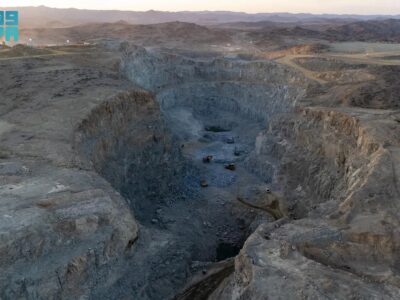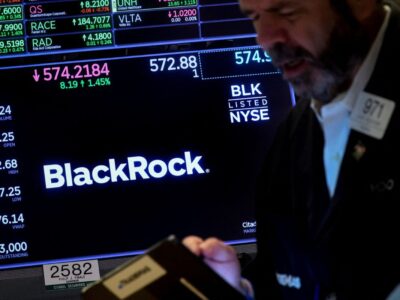In a secure laboratory just outside Paris, a compact metallic device using ultra-cold atoms promises to revolutionise navigation by offering centimetre-level precision on transatlantic journeys without relying on satellites. It’s a glimpse into the invisible thread connecting consumer tech and national defense.
For Bernhard Quendt, Chief Technical Officer at Thales, this convergence is far from accidental. It’s strategic.
“Defense systems will be much more a combination of civilian technologies, highly robustified, but which benefit from the speed of civilian innovations,” he told Arabian Business in an exclusive interview on the sidelines of a recent tour of the French multinational’s quantum technology labs.
Thales reported Q1 2025 revenues of €4.96 billion (approx. $5.4 billion), reflecting a 9.9 per cent year-on-year increase across both its defense and civil operations. The company’s growth stands in contrast to the broader tech sector downturn and underscores the resilience of its dual-sector model. According to Quendt, Thales’ presence in both markets gives it a strategic edge as it accelerates investment in quantum technologies.
A competitive edge through cross-pollination
Thales occupies a rare position in the global tech ecosystem. While often associated with aerospace and military systems, it also serves consumer markets, from cybersecurity to transportation and identity tech. This crossover fuels a cycle of innovation where each side sharpens the other, the CTO explained.
“Most of our competitors in defense are purely defense players. Same on the civilian side,” said Quendt. “We see now more and more civilian companies trying to invest in defense, but they are ages behind us.”
Civilian innovations often move fast but lack resilience. Defense systems are built to withstand war zones and extreme conditions but evolve based on national needs. However, at Thales, the two worlds feed off each other, and the result, he believes, is a sustainable advantage.
“We have a couple of civilian activities that highly inspire defense… This is in our DNA,” he added, pointing to Thales’ acquisition of a digital identity and cybersecurity business as a clear example.
From bank cards to battlefield tech
Take your average bank card. At Thales, researchers are using the same cryptographic principles that secure everyday financial transactions to prepare for a post-quantum world – one where current encryption methods could be obsolete.
Post-quantum cryptography sits at this intersection. The algorithms being developed for cards and eSIMs will also secure critical military communications. France’s National Quantum Strategy, launched in 2021 with over €1.065 billion (approx. $1.16 billion) in public funding, helps drive these efforts.
“The post-quantum crypto, for example, is from both sides, defense and civilian,” Quendt said.

Military-grade AI with consumer implications
Artificial intelligence is another area where the defense-consumer feedback loop is clear. Consumer AI is built for convenience. Military AI has to be built for resilience – even under attack.
“If somebody steals your smartphone, it can easily crack the AI in your smartphone and access a lot of personal data,” Quendt explained. “The defense systems are especially robustified so even if somebody shoots down a drone and gets access to the AI, it’s not crackable. You cannot detect military secrets out of that.”
At Thales, a dedicated centre is developing these hardened AI systems. Eventually, those protections may trickle down to consumer AI platforms, especially as privacy concerns become more pressing.
Quantum sensors and navigating without GPS
Among the most promising outputs of this dual-track approach is quantum navigation. As incidents of GPS jamming and spoofing grow, Thales is advancing quantum inertial measurement systems that could one day replace satellite signals altogether.
“With the cold atoms, you’ll get to a precision that on a flight from here to New York, without any GPS signal, you only have a deviation of maybe a couple of centimetres,” he said. Today’s systems drift much farther over the same distance.
Developed first for defense and aviation, Quendt believes the tech could eventually reach everyday use. “Maybe one day you’ll integrate a cold atom-based sensor in your car,” he said.
The innovation equation
At the heart of Thales’ strategy is a belief that real breakthroughs happen when different domains collide. Consumer tech may move fast. Defense tech may be secure. But only together, Quendt believes, can they deliver the full potential of innovation.
“If they work together, as they do at Thales, they can come up with a lot of innovations that neither of them can do alone,” he said. “Thales understands both worlds. We’re quick enough to be competitive in the civilian world and experienced enough to meet the strict demands of defence.”
With over $1.09 billion spent on R&D per year, as Quendt noted, plus an additional $4.36 billion from clients and customers, Thales is putting its money where its mouth is by betting that the fusion of defense and consumer tech isn’t just a strategy, but the future.









